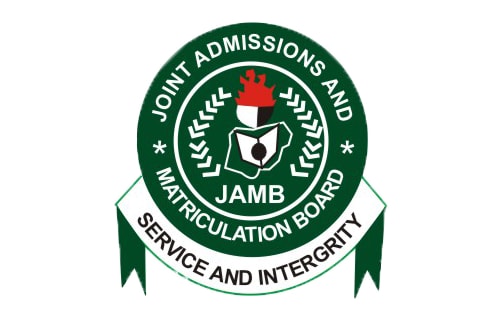
PASSING JAMB WITH LESS WORK AND WITHOUT CHEATING!(3) KNOWING THE NATURE OF JAMB QUESTIONS
1. Except in Use of English all exam papers under JAMB are multi-choice.
2.Some smart people have called multi-choice questions, MULTI -GUESS questions . And there lies the key to all your labour! JAMB exam has no relevance to your brilliance in the classroom but to how smartly you can use your techniques.
3.Coincidentally, 2 out of 3 of the techniques are based on your ability to guess answers correctly under pressure.
4.Specialists have said that it is possible for some students (including primary school students) to score as high as 25% in a JAMB question paper which they know nothing about such as chemistry! We all know this is almost impossible in essay exams.
5. We must also assume that JAMB does not engage itself in negative mar king. But if it does ALL questions must be answered in line with its usual examination instructions. i.e. Do not leave any answer blank even, if you have only 5 to 10 minutes to go.
6. Remember that in JAMB, you can never read fully or enough to make you remember 100% of what you have read. You must accept that the exam scrapbook method will increase the quantum of what you are able to remember. Don’t panic or fret about the volume of what remains to be studied. Every situation has one or more techniques to solve problems arising there from.
7. When using past question papers remember that each question/answer situation is divided into- The Root , The Stem and The Branches.
8. THE ROOT states the underlying facts. They can be written either in present or past tense. They can be short or long. All facts given can be significant or may not be relevant. The facts contained in the roots are also called the STIMULUS MATERIAL. But also note that in some questions, the stem can appear without the root.
9.. THE STEM is the actual question or the task to be done. The key words to the questions are to be found in the stem and not the root. The stem can be in the form of making a choice, or a call for the completion of a sentence. The stem may add facts to the root or may not. It may require that assumptions be made and may specify what course of action or theory to advance or not.
10 THE BRANCHES are the options that are available. They are made up of choices as possible answers. They may state conclusions only or link conclusions with a reason to support it. Options may seem related to one another or may be exactly independent of each other.
11 When using Past questions and answers, they can all be grouped as follows: Questions → Easy, Hard and Possible Answers → The correct answer, the incorrect answer, the best answer the worst answer. The examiners are only interested in the BEST answers. Some answers can be true but irrelevant.
12. Please note that examiners don’t give incorrect questions but they do try to include incorrect answers that will seem reasonable and correct. Don’t be misled however. You must be able to identify these during your preparations to an extent that it becomes second nature for your exams.
13. JAMB questions should not be failed. A bit of knowledge with a bit of guess work should allow you pass the exam about 50% of the time. The purpose of this write up is to examine ways by which this 50% can be pushed up to a percentage above 70%. If you ever sat for any objective(multi- choice) exam again the approach and techniques to use will be the same
14. Stop wasting time looking for any pattern in the answers given. There are no such things deliberately put in by examiners.
15. In an earlier write-up we also classified all JAMB questions as EASY, HARD and POSSIBLE as emphasised above These questions usually determine the techniques to be used. But what do we mean by these classifications? An EASY question is one whose answer you know by merely reading the stem. A HARD one is the one you do not know and the options given do not reveal any hint of assistance. The third called POSSIBLE are those having two or three possible answers playing soccer with your mind.They are the usual TIME-WASTERS to students.But you are not alone.Nature has a way for compensating difficult situations cause these type of questions usually have the greatest number of hints to use in making a choice.Over 20 of such hints are given in a latter write-up. But once u know how to recognize them you will pass the original Jamb and post - Jamb exams. Each of these types of questions will later be linked with the techniques most suitable for them. Note however that an easy question for you can be a hard one for someone else.
16. Let us also pay attention to some answers/options used by examiners called DISTRACTERS and FOILS. A DISTRACTER is something which compellingly and confusingly attracts you in the wrong direction e.g. true answers which are not the best answers. A FOIL is something which tends to set off another thing to advantage or disadvantage by contrasting with it. All examiners use distracters and foils and they are usually given looks of superficial plausibility. Many students see and choose distracters and foils but fail to look for the best answers leading to their failure.
17.Though some questions may be classified as EASY, rarely are the correct answers immediately obvious. The “best” options are usually designed to distract you from the “correct” option and encourage you to think carefully ( i.e. a bit more) about why that option is the best one. Sometimes the difference between the “best” and the “correct” answer maybe one single word or phrase e.g. Pay a higher rate of interest. (Best because it is correct always) Pay a lower rate of interest. (Possible because it is correct under certain conditions)
WE HOPE YOU UNDERSTAND WHAT WE HAVE STATED ABOVE.IF YOU DO IT SHOULD THEREFORE BE OBVIOUS WHY WE HAD TO PUT DOWN WHAT WE CALLED A FOUNDATION FOR THE COMING TECHNIQUES… GOODLUCK.



